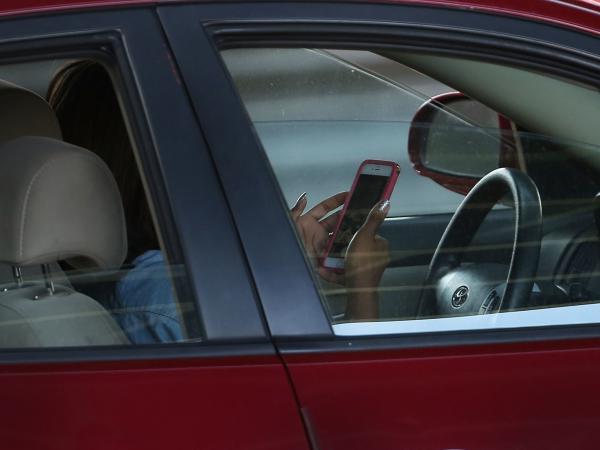Section Branding
Header Content
How The Hands-Free Driving Law Will Affect Georgia Drivers
Primary Content
The Hands-Free Georgia Law takes effect July 1, and will change the way drivers are allowed to use their devices while they drive.
Officers plan to pull drivers over for holding or supporting their phones with their bodies, Atlanta police Major Elder Dancey told GPB News.The Hands-Free Driving Law takes effect July 1 in Georgia.
Texting and driving is already illegal in Georgia, but the new law further limits drivers to only a handful of hands-free uses. Drivers may still talk on the phone as long as a system like car audio system, Bluetooth earpiece or smartwatch is used.
Playing music using a phone is also allowed, as long as a driver interacts with or programs the app while legally parked. This does not include coming to a halt at a red light or stop sign, Dancey said.
PREVIOUS COVERAGE: Distracted Driving, Transit And Cityhood In The 2018 Legislative Session
Fatal crashes involving distracted drivers dropped from roughly 10 percent in 2010 to 3 percent in 2015, following the law that made texting and driving illegal, according to the Governor's Office of Highway Safety.
Department spokesman Robert Hydrick said they hope to see a further decrease, similar to what other states with distracted driving legislation have seen.
"Some of them have been 14, 15 percent, some of them have six, seven, eight percent," Hydrick said. "But you know, ... every life that we can save matters."
Hydrick also said his office hopes that by changing driver behaviors more fatalities can be prevented.
The Atlanta Police Department does plan to pull drivers over if an officer sees a violation of the law, but Dancey said officers have discretion in how they enforce the law.
"Everybody is not going to be familiar with this law on July 1," Dancey said. "We want to make sure we give everyone the benefit of the doubt. But, at the same time, we want them to understand that this is a new law and we are serious about enforcing it."
Their objective is educating the public, not issuing tickets, Dancey said.

